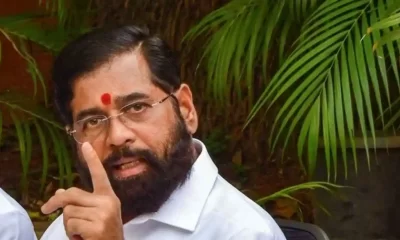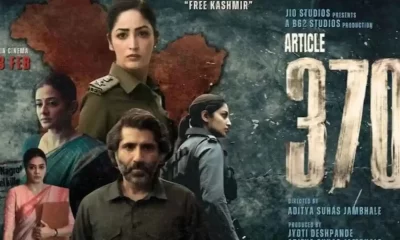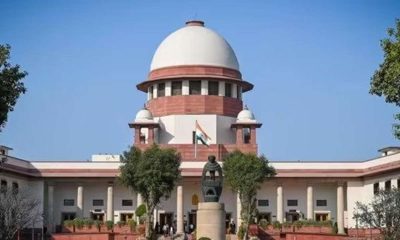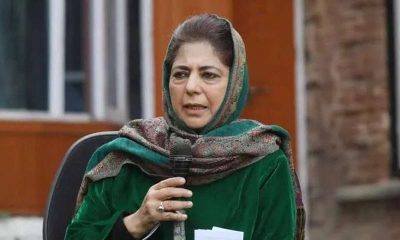Top Stories
Article 35A denied fundamental rights to Jammu-Kashmir people: Supreme Court
The remarks followed during the Day 11 hearing on a batch of petitions challenging the abrogation of Article 370 in the context of erstwhile state of Jammu and Kashmir.
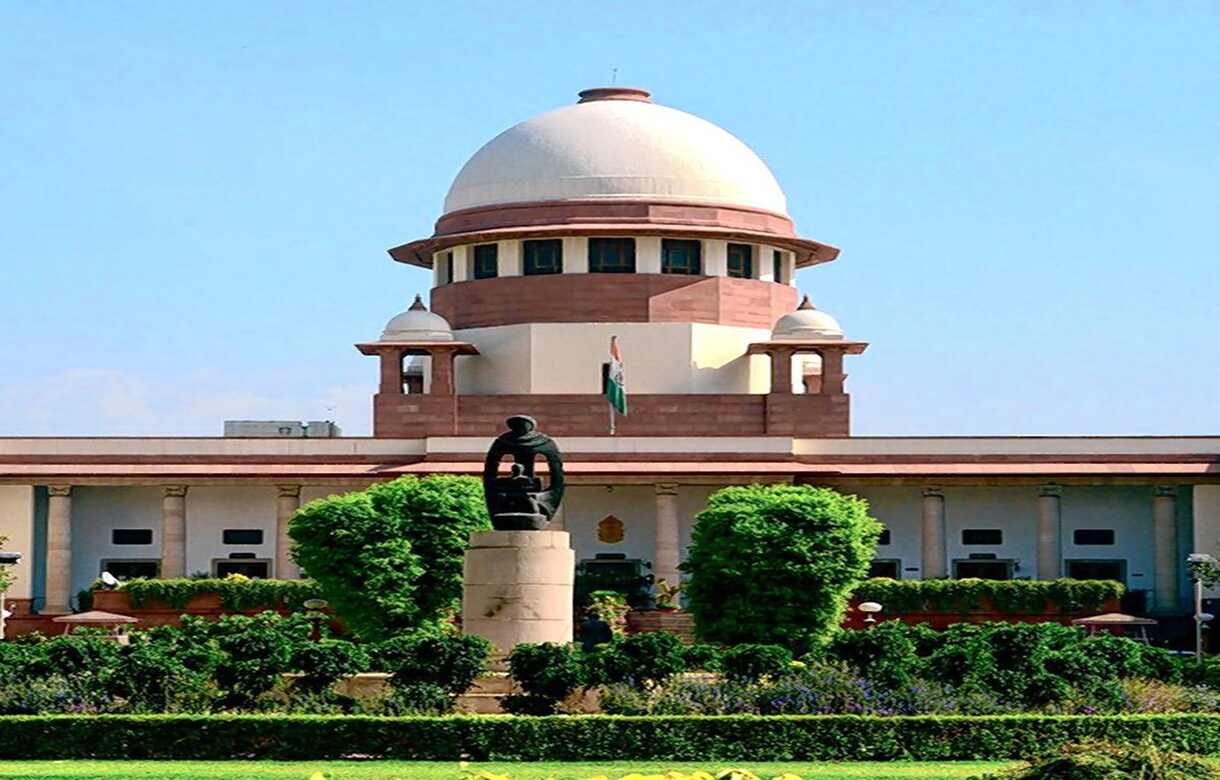
Chief Justice of India DY Chandrachud on Monday noted that Article 35A of the Indian Constitution denied fundamental rights of the people of Jammu and Kashmir. The remarks followed during the Day 11 hearing on a batch of petitions challenging the abrogation of Article 370 in the context of erstwhile state of Jammu and Kashmir.
The Chief Justice told Solicitor General Tuashar Mehta that the 1954 order applied to the entirely Part 3 of the Indian Constitution and therefore Article 16, 19 applied to them. He added that if he looks at the 1950 order, it applies Part 3, but when Article 35A is put forth it creates exceptions in three areas: employment under state government, acquisition of immovable properties and settlement in the state.
He further continued that though Part 3 is applicable in the same vein, when Article 35A is introduced it is taking away three fundamental rights: Article 16(1), Article 19(1)(f) the right to acquire immovable property, Article 31, and settlement in the state, which was a fundamental right under 19(1) (a). Therefore, by enacting Article 35A you virtually took away the fundamental rights, he explained.
Elaborating on the advantages of scrapping Article 370, Tushar Mehta explained that when the matter is considered from the point of view of the people of Jammu and Kashmir, it states that the move brought Jammu and Kashmir people at par with other countrymen as well. As yet, people were convinced that Article 370 is not a hindrance to progress and it cannot be removed, he added. At present, with Article 35A, investment is coming and with the policies of central government, tourism has commenced, Tushar Mehta continued.
As far as reports are concerned, Article 35A, which was also scrapped in August 2019 along with Article 370, allowed the legislature of the erstwhile state of Jammu and Kashmir to define permanent residents and provide them with special rights and privileges in terms of public employment, immovable property and settlement.
India News
Delhi Congress President Arvinder Singh Lovely resigns, says he feels handicapped under Deepak Babaria’s leadership
Arvinder Singh Lovely pointed out many instances when party leaders objected to the way Deepak Babaria, the Congress’s general secretary in-charge for Delhi, conducted the state of affairs. Lovely said that he was under great pressure to expel the leaders who objected to Babaria’s ways.
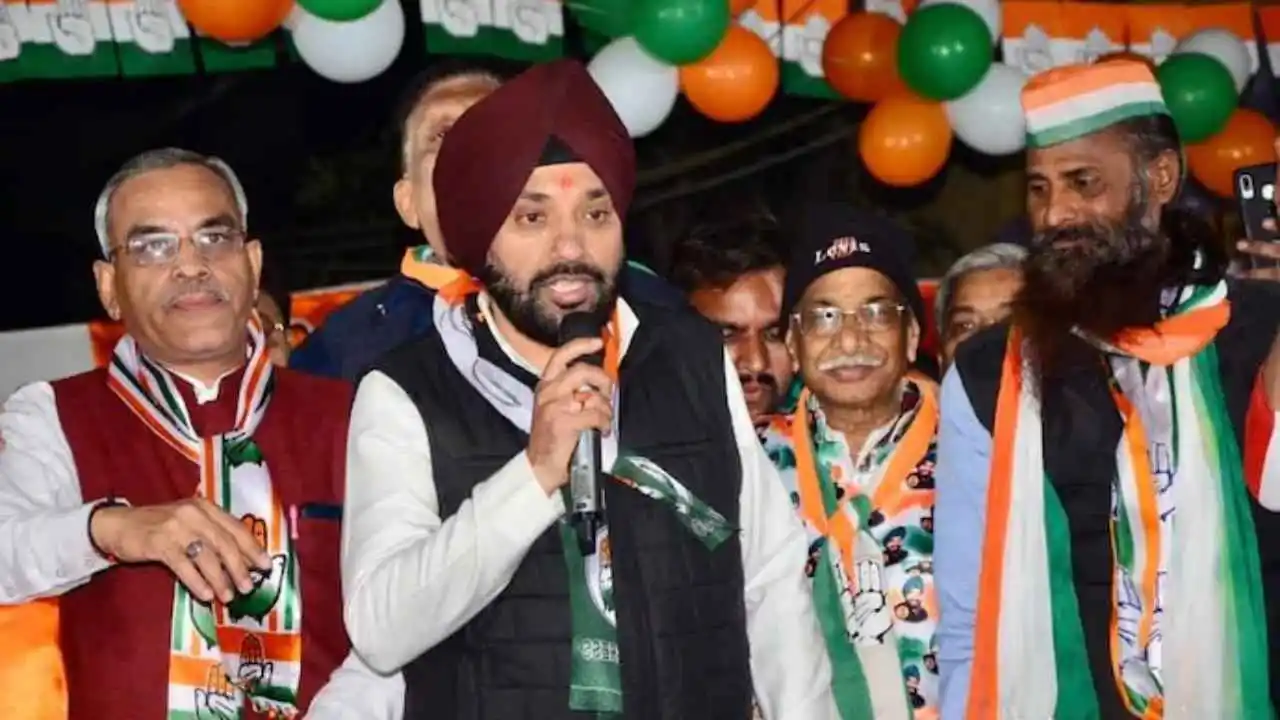
Delhi Congress President Arvinder Singh Lovely on Sunday resigned from his post, citing interference by the party’s general secretary in-charge and alliance with the Aam Aadmi Party in Delhi as major friction points. In his resignation letter to Congress chief Mallikarjun Kharge, Lovely said he felt handicapped and unable to continue as the president of the Delhi Congress unit.
He pointed out many instances when party leaders objected to the way Deepak Babaria, the Congress’s general secretary in-charge for Delhi, conducted the state of affairs. Lovely said that he was under great pressure to expel the leaders who objected to Babaria’s ways. Arvinder Singh Lovely said the Congress’s alliance with the AAP in Delhi for the Lok Sabha elections, which he claimed was opposed by the Delhi Congess unit.
Lovely wrote in his letter to the Congress President that the state Congress Unit was against forming an alliance with the Aam Aadmi Party which was formed on the sole basis of levelling false, fabricated and malafide corruption charges against the Congress, and in turn, whose half of the cabinet ministers are in jail on corruption charges. He further called the alliance a compromise to improve chances of victory for the Congress.
Arvinder Singh Lovely said while he respected the Congress’s alliance decision with Aam Aadmi party but he was upset by Congress’s North East Delhi seat candidate Kanhaiya Kumar praising AAP chief Arvind Kejriwal. Lovely further said that according to the alliance, the Congress was allotted 3 Lok Sabha seats, of which 2 – North West and North East – constituencies were given to total strangers.
Udit Raj is a Congress-AAP joint candidate in North West Delhi, whereas Kanhaiya Kumar is contesting from the North East seat. Arvinder Singh Lovely said the announcement of Raj and Kumar as candidates had caused an uproar and protests by Delhi Congress leaders and workers within the party.
2024 Lok Sabha Elections
Mallikarjun Kharge says candidates for Amethi, Rae Bareli seats in Uttar Pradesh will be announced in a few days
On being asked about the names of the candidates for Amethi and Rae Bareli Lok Sabha constituencies Mallikarjun Kharge said the people will have to wait for a few more days. He said when the names of candidates come from people to him and he will sign the notification, then the announcement will be made.
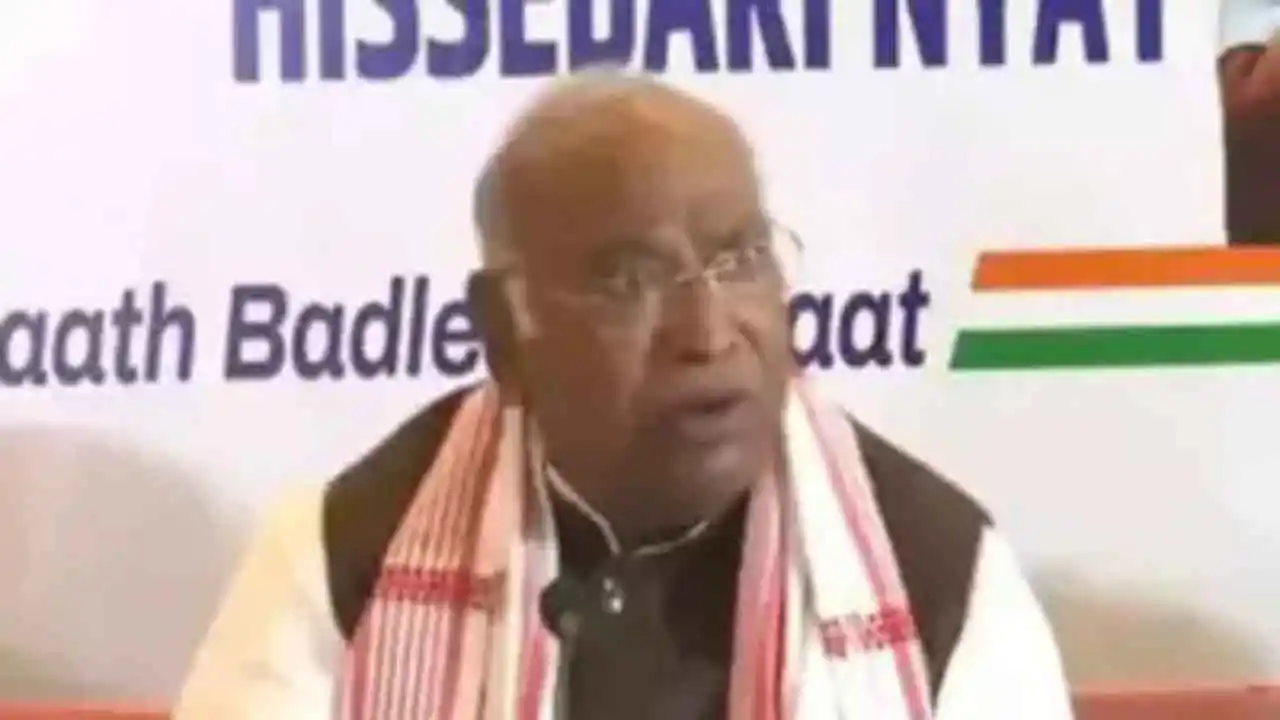
Congress president Mallikarjun Kharge on Saturday said that the candidates for prestigious Amethi and Rae Bareli seats in Uttar Pradesh will be announced in a few days. He was addressing a press conference where he claimed that though the BJP says the corrupt must be put in jails, when leaders facing corruption charges join the saffron party, they are put on the lap and sent to Rajya Sabha or assembly.
On being asked about the names of the candidates for Amethi and Rae Bareli Lok Sabha constituencies he said the people will have to wait for a few more days. He said when the names of candidates come from people to him and he will sign the notification, then the announcement will be made.
On being questioned about Congress leaders changing constituencies Kharge asked how many times have Atal Bihari Vajpayee and Lal Krishna Advani changed their seats. His response came when asked about the BJP criticising Rahul Gandhi for fighting the elections from Kerala’s Wayanad instead of Amethi. Referring to Assam Chief Minister Himanta Biswa Sarma, Kharge said the Congress is not affected by people who grew up in the party and left it later.
The Congress president launched an all round attack on the BJP and PM Modi and said the prime minister did not implement even one of his electoral promises and still says Modi did a lot of work for the country. Addressing the press conference he said the BJP never fought for the independence of India, but Congress is a party of those who made India independent. He said the BJP never fought for the independence of India, for the development of India. The Congress President said the BJP speaks so much about patriotism and that the contribution of Pandit Jawahar Lal Nehru, Indira Gandhi and Lal Bahadur Shastri is nothing before them.
2024 Lok Sabha Elections
Priyanka Gandhi accuses BJP of planning to change the Constitution, criticises PM Modi for inflation
Priyanka Gandhi was speaking at an election rally at Dharampur village of tribal dominated Valsad district held in support of Congress candidate for ST-reserved Valsad Lok Sabha seat, Anant Patel.
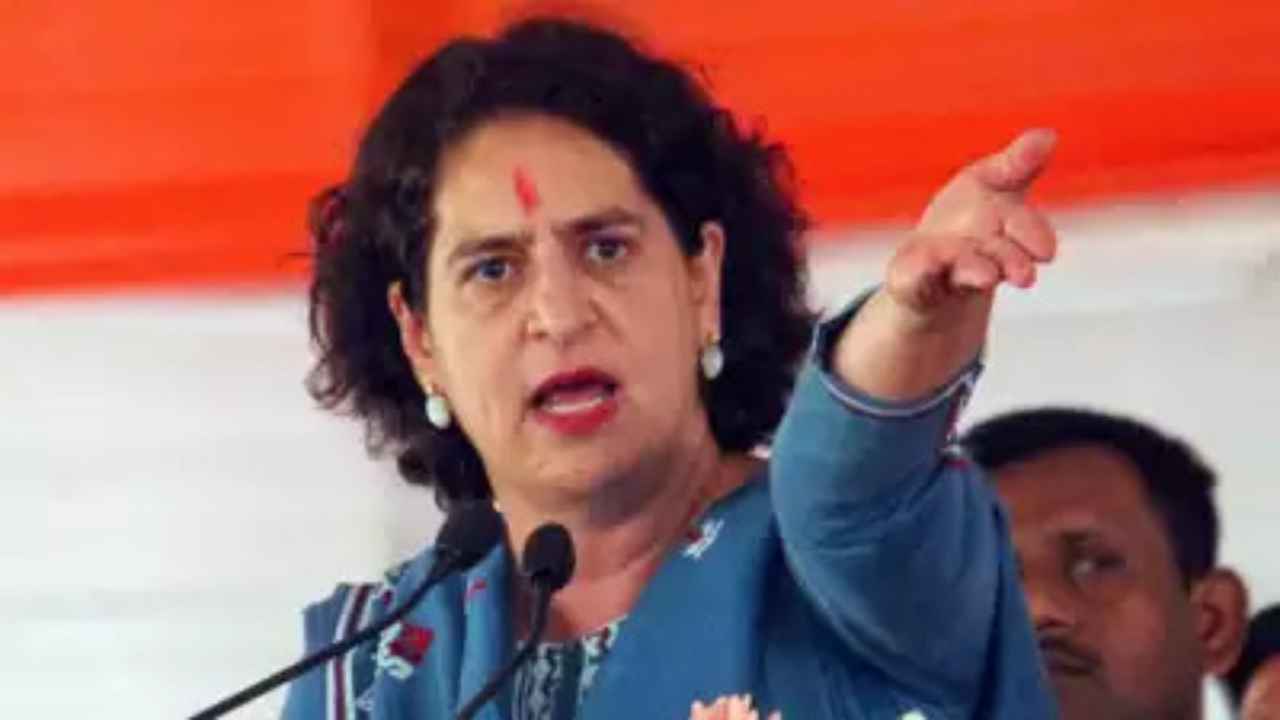
Congress leader Priyanka Gandhi on Saturday said the BJP may be denying it now, but the party will change the Constitution if it returns to power. She targeted Prime Minister Narendra Modi over inflation and called him the mehengai man.
Gandhi said the BJP leaders and candidates are saying that they will change the Constitution. She said PM Modi is denying it and this is BJP’s tactic. Priyanka Gandhi was speaking at an election rally at Dharampur village of tribal dominated Valsad district, Gujarat held in support of Congress candidate for ST-reserved Valsad Lok Sabha seat, Anant Patel.
Gandhi said first the BJP will deny what they want to do. But after coming to power they will implement it. She further added the BJP wants to change the constitution to weaken the common people and deprive them of their rights given in the Constitution. She said the BJP leaders project the Prime Minister as powerful and say that chutki bajake ladai rukwa dete hai (he can stop the Russia- Ukraine war with the snap of his fingers). She asked why is Prime Minister unable to remove poverty just like that?
Priyanka Gandhi claimed the tribal population in Gujarat which is Modi’s home state and the whole country is suffering from issues like rising inflation, unemployment, low remumberation, loss of land, violence against women and other atrocities. She highlighted the Congress manifesto and said it addresses issues faced by the tribal population.
She assured the people that the Congress will bring schemes like MGNREGA for urban areas where families will get 100 days of guaranteed work. She said the Congress is committed to filing about 30 lakh vacancies in government jobs, providing subsidised diesel to fishermen and take the minimum wage to Rs 400. Gandhi said the Congress is going to work out sub plans for Scheduled Tribes and scheduled castes.
-
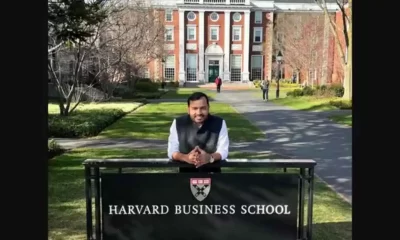
 Education23 hours ago
Education23 hours agoPhysics Wallah founder gets invited as speaker to Harvard, Stanford Universities, post goes viral
-

 2024 Lok Sabha Elections20 hours ago
2024 Lok Sabha Elections20 hours agoMallikarjun Kharge says candidates for Amethi, Rae Bareli seats in Uttar Pradesh will be announced in a few days
-

 2024 Lok Sabha Elections22 hours ago
2024 Lok Sabha Elections22 hours agoPriyanka Gandhi accuses BJP of planning to change the Constitution, criticises PM Modi for inflation
-
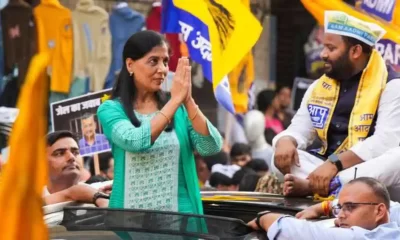
 2024 Lok Sabha Elections19 hours ago
2024 Lok Sabha Elections19 hours agoSunita Kejriwal holds maiden Lok Sabha election roadshow in Delhi
-
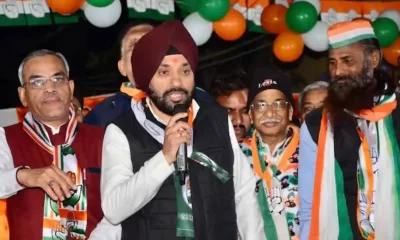
 India News1 hour ago
India News1 hour agoDelhi Congress President Arvinder Singh Lovely resigns, says he feels handicapped under Deepak Babaria’s leadership
-
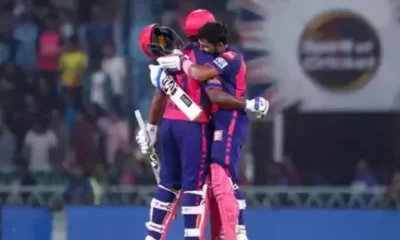
 Cricket news2 hours ago
Cricket news2 hours agoIPL 2024: Rajasthan Royals beat Lucknow Super Giants by 7 wickets and 6 balls to spare



